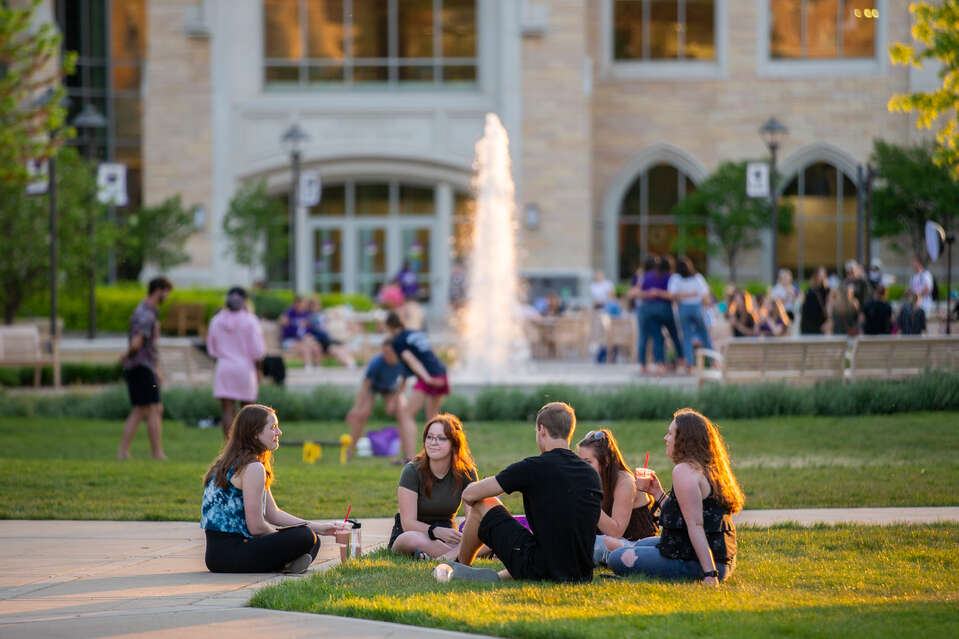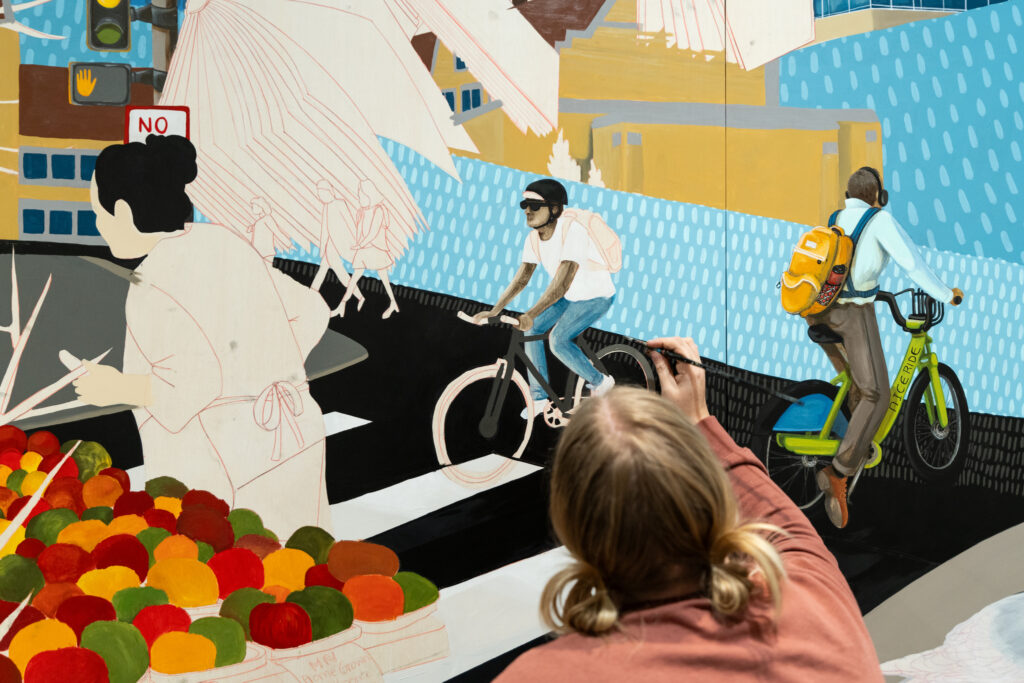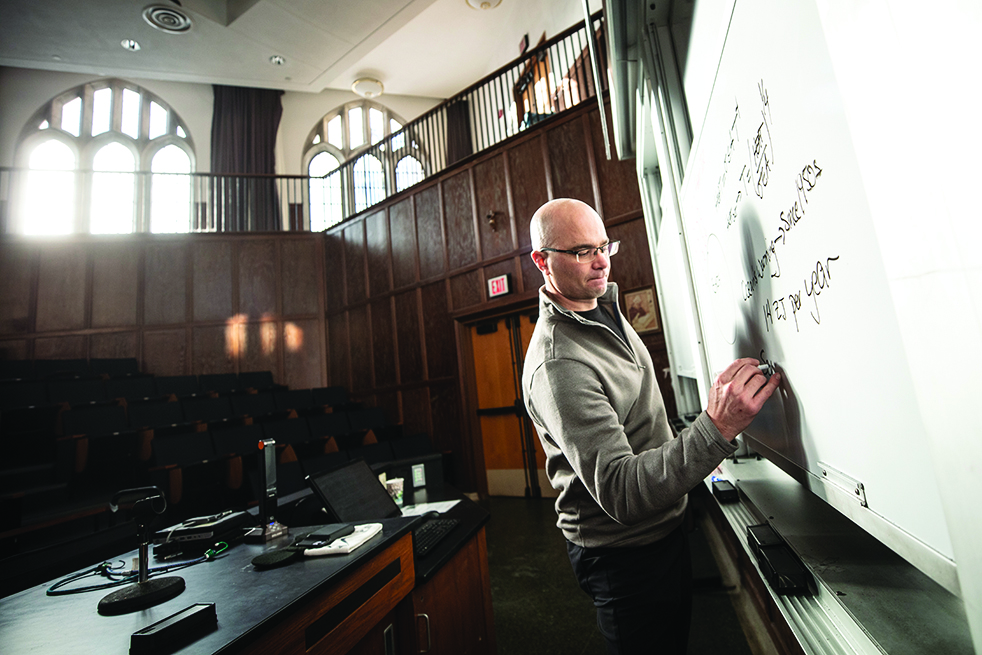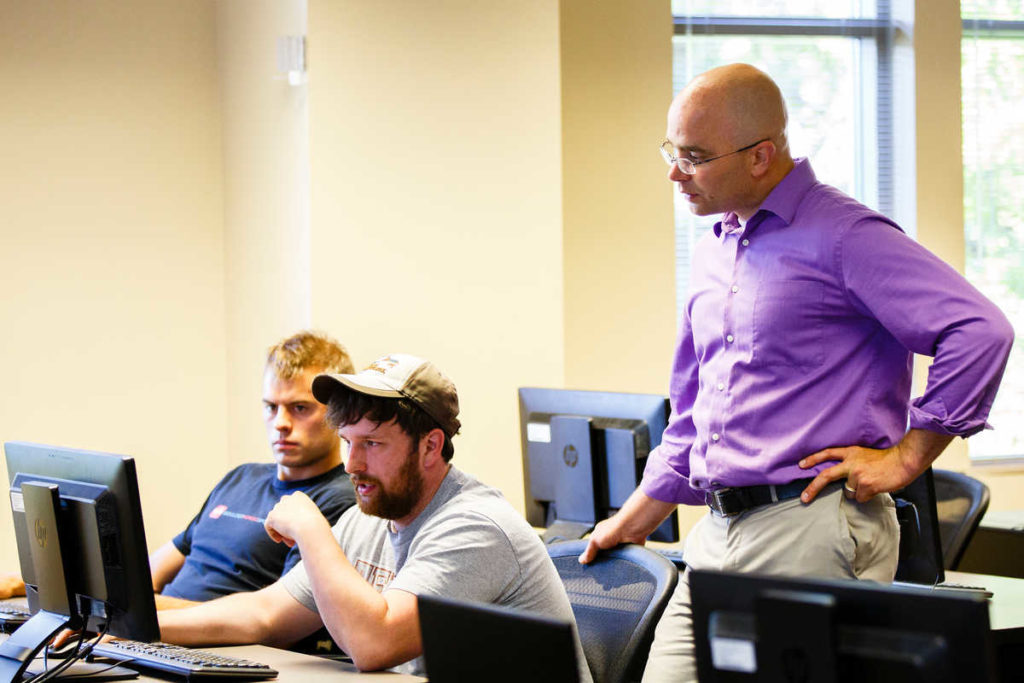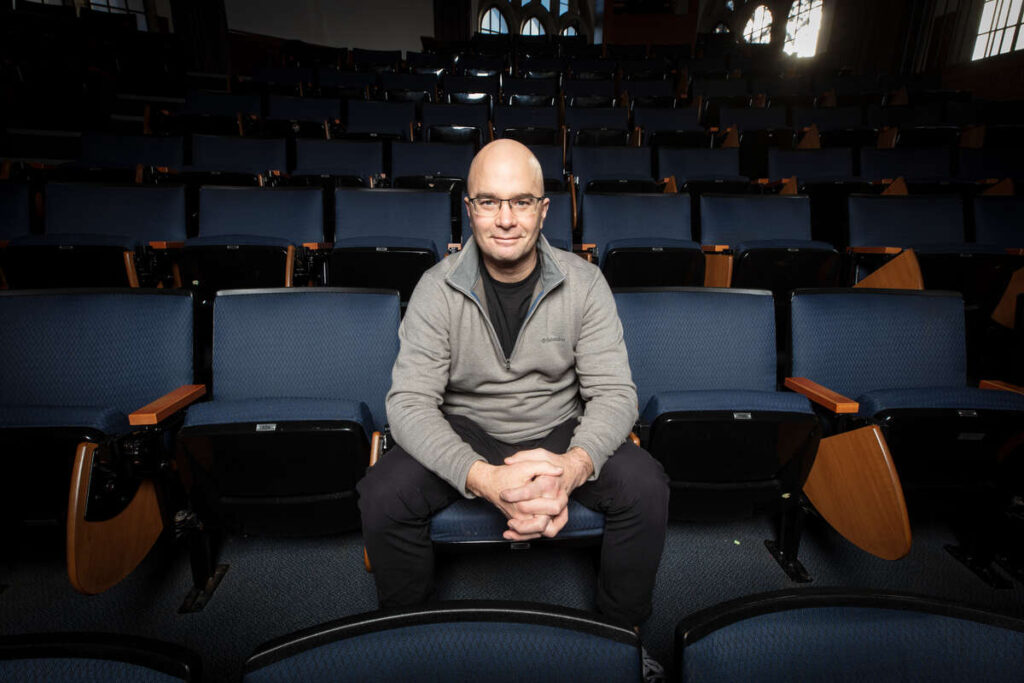Sustainability has been a core part of the St. Thomas mission for years. Recently, that commitment has drawn eyes on a national level.
This past November 2022, St. Thomas was ranked for the first time in the Top 50 Green Colleges by the Princeton Review. So how exactly did the university earn a spot on the list? The answer is found carefully woven into every inch of campus.
Officially, the Princeton Review selects its list with a focus on three main areas: superb sustainability practices, sustainability education, and a healthy quality of life for students on campus. But above all, they’re looking for a college that infuses its sustainability principles into everything it does.
And that’s exactly what the reviewers found at St. Thomas, which earned a top-tier score of 94 points out of a possible 99.
“Sustainability is embedded across the university, and it’s not just one department that is focusing on it,” Program Manager for the Office of Sustainability Initiatives Rachel Schauer said. “One of the things that makes St. Thomas unique, and really contributed to our ranking, is that sustainability is just immersed into everyone’s lives here.”
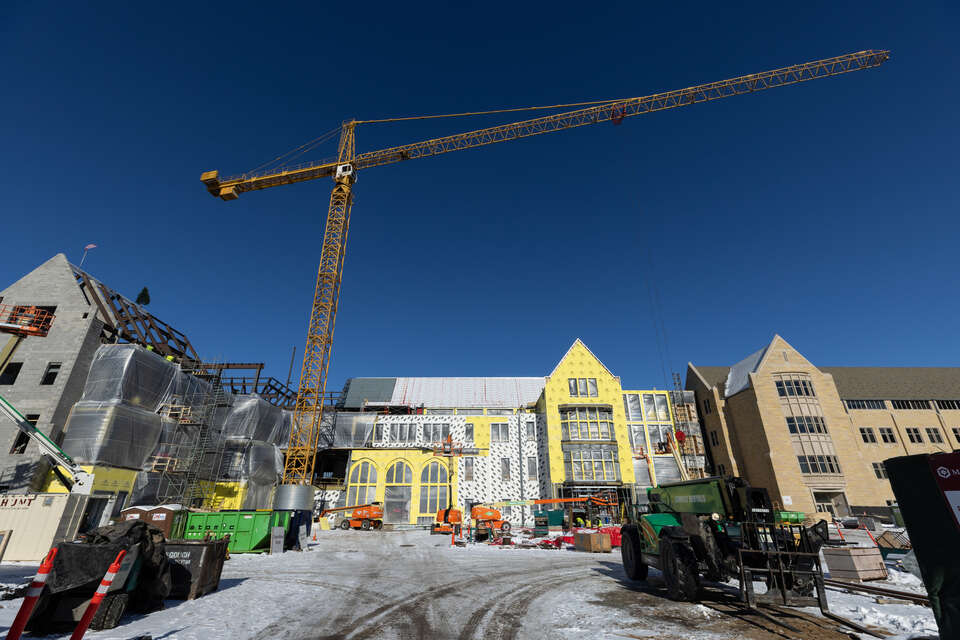
Leading by green example
Embedding that green way of life starts at the institutional level with policies adopted to inspire and create real change on campus. And here’s the big one: achieving carbon neutrality by 2035.
To get there, the university has a lot going on. From new construction to waste reduction, St. Thomas is on track to achieving carbon neutrality in less than a decade.
One of the clearest examples of that work is the physical buildings themselves. The university has committed to obtaining a minimum of LEED Silver certification for all new, larger facilities, while the university’s new construction is also exceeding this commitment. Frey Hall was the first building of its kind in the Midwest to achieve LEED Platinum certification, and St. Thomas is pursuing LEED Gold certification for the under-construction Schoenecker Center.
Some university initiatives are harder to see, but just as crucial to achieving a sustainable campus:
- The Summit Classroom Building renovation included energy efficiency strategies that are estimated to have an annual carbon emissions savings of 130,000 pounds of carbon dioxide.
- High-efficiency hot water heaters were installed in several residence halls that increased efficiencies up to 90%.
- The university has reduced annual potable water use by 34%, or 22.3 million gallons.
- Through waste reduction, reuse, recycling and composting efforts, the university has achieved a 58% solid waste diversion rate, with a goal of achieving a 70% solid waste diversion rate by 2025.
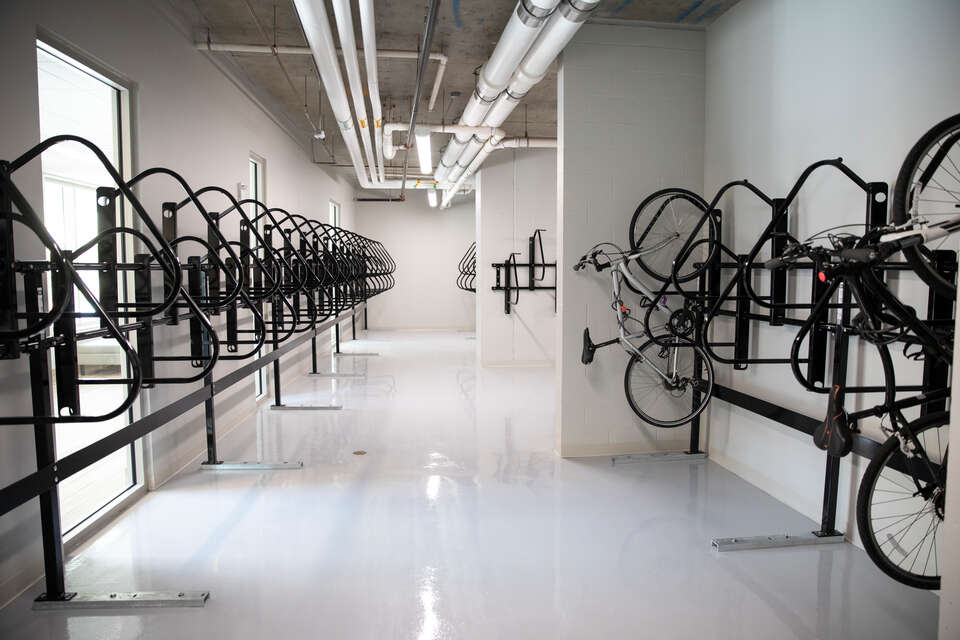
A sustainable way of campus living
Whether they realize it or not, the university’s commitment to sustainability begins the moment students step onto campus.
First-year students are encouraged to embrace green laundry habits, taught how to use bicycle repair stations and catch the campus shuttle. Field trips introduce students to mass transit and local sustainable shops. The goal is to help Tommies shape much of their daily lives with sustainability in mind and to give them the tools to make it happen.
“Of course, we must have policies here on campus that contribute to the solutions of climate change and waste reduction, but this is not a one-size fits all kind of solution,” Schauer said. “We need everyone’s buy-in to truly create a sustainable, green campus.”

One of the biggest ways to embrace a sustainable way of campus living is by sitting down for a meal. Dining Services has significantly reduced plastic packaging, offering instead compostable and reusable to-go containers for retail dining. Beyond packaging, chefs are providing more plant-based options in the dining halls.
Growing sustainability-minded leaders
The final, and potentially most important, piece of the sustainability puzzle on campus focuses on preparing students to lead and work in an increasingly green economy. To do this, the Office of Sustainability Initiatives has built a comprehensive system to support the integration of sustainability across classrooms.
From environmental science to engineering and social work, sustainability is a core piece of the St. Thomas curriculum. More than 80% of academic departments offer at least one course that addresses sustainability. And nearly one in three faculty members have engaged in research addressing a sustainable development goal.
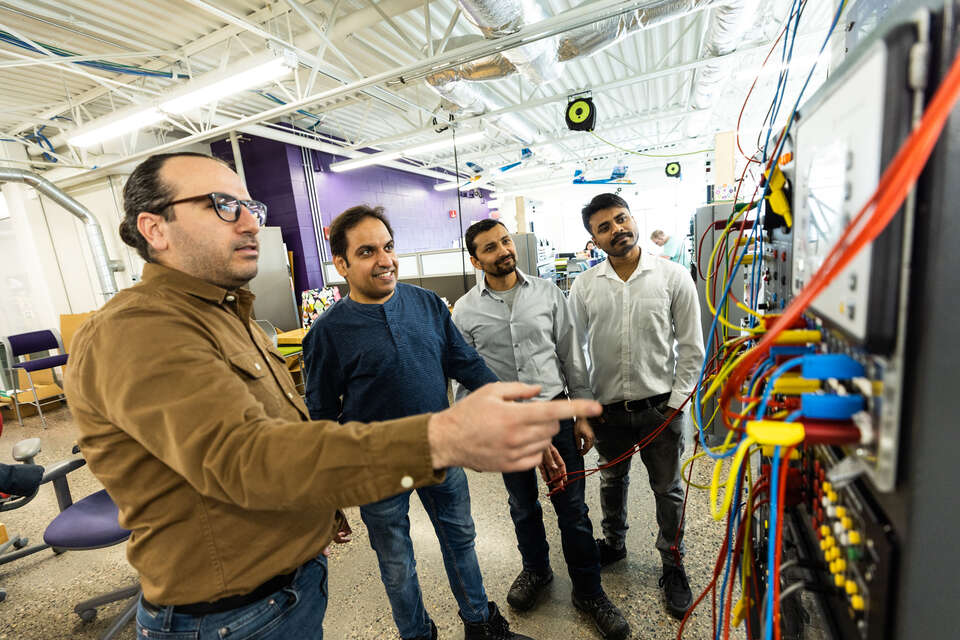
The St. Thomas Sustainable Communities Partnership also creates opportunities for real-world, experiential learning in sustainability across disciplines. Through SCP, students collaborate with local government and nonprofits to apply what they learn in class to sustainability challenges in our community. Students develop real-world, creative problem-solving skills, make connections in the Twin Cities community, and gain confidence to be leaders in sustainability in their future career paths.
“Students all over campus – no matter the major they’re going into – are being introduced to these sustainability problems,” Schauer said. “They are seeing the problems, and then they are being asked, ‘What are the solutions that we have to offer?’”
The university also recently began offering a sustainability minor, which is meant to pair with majors of all kinds, from mathematics to museum studies.
An eye on a bright and bold future
Leaders acknowledge that while St. Thomas is a leader in campus sustainability, the work is far from over.
Ongoing projects include a university commitment to divest its endowment from fossil fuels and growing its ability to divert materials from solid waste. Facilities Management continues to retrofit older buildings with solar arrays and new HVAC systems.
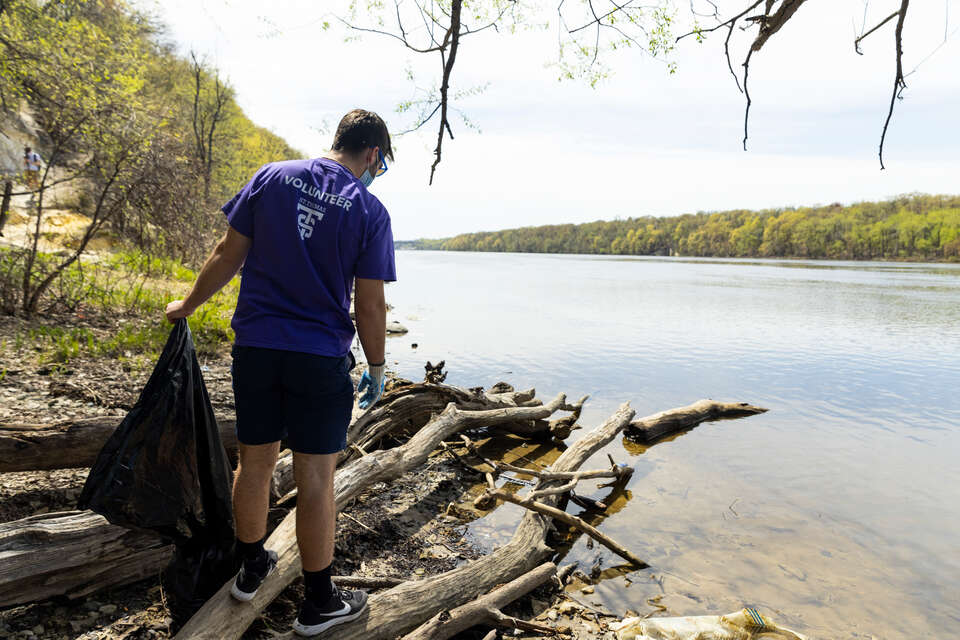
“We should 100% be proud of where we’re at and the progress that so many people at St. Thomas have achieved, but we must also keep in mind that there’s so much more work to be done,” Schauer said.
As the university continues this important work, Tommies will hear a renewed call for action at this year’s Sustainability Week. Twenty-five departments and organizations across campus will host events to educate community members about sustainability initiatives and encourage involvement.
This year, Sustainability Week takes place April 17-23. Events include a Mississippi River cleanup, office supply swap and scavenger hunt. Check out the full list to take part.
From @uofstthomasmn on Instagram: 2023 Tommie Award recipient and environmental science major, Katie McGinnis, highlights sustainable initiatives on campus.
